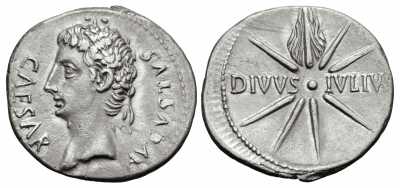This week’s readings are all from Matthew 1-4. Click here to see a full listing of each day’s reading and the full chapter of Matthew 1-4. Full readings of each day’s smaller segments of the readings will be posted on this site during the week.
Today's Reading
18 Now the birth of Jesus the Messiah took place in this way. When his mother Mary had been engaged to Joseph, but before they lived together, she was found to be with child from the Holy Spirit. 19 Her husband Joseph, being a righteous man and unwilling to expose her to public disgrace, planned to dismiss her quietly. 20 But just when he had resolved to do this, an angel of the Lord appeared to him in a dream and said, “Joseph, son of David, do not be afraid to take Mary as your wife, for the child conceived in her is from the Holy Spirit. 21 She will bear a son, and you are to name him Jesus, for he will save his people from their sins.” 22 All this took place to fulfill what had been spoken by the Lord through the prophet:
23 “Look, the virgin shall conceive and bear a son,
and they shall name him Emmanuel,”
which means, “God is with us.” 24 When Joseph awoke from sleep, he did as the angel of the Lord commanded him; he took her as his wife, 25 but had no marital relations with her until she had borne a son; and he named him Jesus.
2 In the time of King Herod, after Jesus was born in Bethlehem of Judea, wise men from the East came to Jerusalem, 2 asking, “Where is the child who has been born king of the Jews? For we observed his star at its rising, and have come to pay him homage.” 3 When King Herod heard this, he was frightened, and all Jerusalem with him; 4 and calling together all the chief priests and scribes of the people, he inquired of them where the Messiah was to be born. 5 They told him, “In Bethlehem of Judea; for so it has been written by the prophet:
6 ‘And you, Bethlehem, in the land of Judah,
are by no means least among the rulers of Judah;
for from you shall come a ruler
who is to shepherd my people Israel.’”
7 Then Herod secretly called for the wise men and learned from them the exact time when the star had appeared. 8 Then he sent them to Bethlehem, saying, “Go and search diligently for the child; and when you have found him, bring me word so that I may also go and pay him homage.” 9 When they had heard the king, they set out; and there, ahead of them, went the star that they had seen at its rising, until it stopped over the place where the child was. 10 When they saw that the star had stopped, they were overwhelmed with joy. 11 On entering the house, they saw the child with Mary his mother; and they knelt down and paid him homage. Then, opening their treasure chests, they offered him gifts of gold, frankincense, and myrrh. 12 And having been warned in a dream not to return to Herod, they left for their own country by another road.
Who could see the Star of Bethlehem? It appeared to the wise men but Herod didn’t appear to know about it. The star is not mentioned in the Gospel of Luke, it was an angel that appeared to them.
It was an angel that appeared to the wise men.
Her husband Joseph, being a righteous man and unwilling to expose her to public disgrace, planned to dismiss her quietly
The OT laws concerning what happens to married women who were accused of not being virgins prior to the consummation of marriage or wives that committed adultery after were public, brtual, and harsh:
Suppose a man marries a woman, but after going in to her, he dislikes her and makes up charges against her, slandering her by saying, “I married this woman; but when I lay with her, I did not find evidence of her virginity.” The father of the young woman and her mother shall then submit the evidence of the young woman’s virginity to the elders of the city at the gate. The father of the young woman shall say to the elders: “I gave my daughter in marriage to this man but he dislikes her; now he has made up charges against her, saying, ‘I did not find evidence of your daughter’s virginity.’ But here is the evidence of my daughter’s virginity.” Then they shall spread out the cloth before the elders of the town. The elders of that town shall take the man and punish him; they shall fine him one hundred shekels of silver (which they shall give to the young woman’s father) because he has slandered a virgin of Israel. She shall remain his wife; he shall not be permitted to divorce her as long as he lives.
If, however, this charge is true, that evidence of the young woman’s virginity was not found, then they shall bring the young woman out to the entrance of her father’s house and the men of her town shall stone her to death, because she committed a disgraceful act in Israel by prostituting herself in her father’s house. So you shall purge the evil from your midst. (Deuteronomy 22.13–21 NRSV)
If a woman was accused of having committed adultery because her husband simply had doubts or jealousy about her, she had to go through the following process:
The LORD spoke to Moses, saying: Speak to the Israelites and say to them: If any man’s wife goes astray and is unfaithful to him, if a man has had intercourse with her but it is hidden from her husband, so that she is undetected though she has defiled herself, and there is no witness against her since she was not caught in the act; if a spirit of jealousy comes on him, and he is jealous of his wife who has defiled herself; or if a spirit of jealousy comes on him, and he is jealous of his wife, though she has not defiled herself; then the man shall bring his wife to the priest. And he shall bring the offering required for her, one-tenth of an ephah of barley flour. He shall pour no oil on it and put no frankincense on it, for it is a grain offering of jealousy, a grain offering of remembrance, bringing iniquity to remembrance.
Then the priest shall bring her near, and set her before the LORD; the priest shall take holy water in an earthen vessel, and take some of the dust that is on the floor of the tabernacle and put it into the water. The priest shall set the woman before the LORD, dishevel the woman’s hair, and place in her hands the grain offering of remembrance, which is the grain offering of jealousy. In his own hand the priest shall have the water of bitterness that brings the curse. Then the priest shall make her take an oath, saying, “If no man has lain with you, if you have not turned aside to uncleanness while under your husband’s authority, be immune to this water of bitterness that brings the curse. But if you have gone astray while under your husband’s authority, if you have defiled yourself and some man other than your husband has had intercourse with you,” —let the priest make the woman take the oath of the curse and say to the woman—“the LORD make you an execration and an oath among your people, when the LORD makes your uterus drop, your womb discharge; now may this water that brings the curse enter your bowels and make your womb discharge, your uterus drop!” And the woman shall say, “Amen. Amen.” Then the priest shall put these curses in writing, and wash them off into the water of bitterness. He shall make the woman drink the water of bitterness that brings the curse, and the water that brings the curse shall enter her and cause bitter pain. The priest shall take the grain offering of jealousy out of the woman’s hand, and shall elevate the grain offering before the LORD and bring it to the altar; and the priest shall take a handful of the grain offering, as its memorial portion, and turn it into smoke on the altar, and afterward shall make the woman drink the water. When he has made her drink the water, then, if she has defiled herself and has been unfaithful to her husband, the water that brings the curse shall enter into her and cause bitter pain, and her womb shall discharge, her uterus drop, and the woman shall become an execration among her people. But if the woman has not defiled herself and is clean, then she shall be immune and be able to conceive children. This is the law in cases of jealousy, when a wife, while under her husband’s authority, goes astray and defiles herself, or when a spirit of jealousy comes on a man and he is jealous of his wife; then he shall set the woman before the LORD, and the priest shall apply this entire law to her. The man shall be free from iniquity, but the woman shall bear her iniquity. (Numbers 5.11–31 NRSV)
Some scholars argue that in the first century a betrothed couple was already considered fully husband and wife prior to consummation and that the previous biblical laws would apply. However, the Mishnah, a collection of Jewish laws and customs compiled in the 2nd and 3rd centuries after Jesus (but possibly reflecting customs during the first century), states that betrothed women who become pregnant prior to the consummation of the marriage do not have to drink the bitter water, but are still subject to public shame and do not receive their dowry:
With regard to a betrothed woman who secluded herself with another man after being warned by her betrothed, and a widow waiting for her brother-in-law [yavam] to perform levirate marriage who secluded herself with another man after being warned by her yavam, they neither drink the bitter water nor collect payment of their marriage contracts. The reason they are not entitled to payment of their marriage contracts is that the betrothed woman became forbidden to her betrothed or the widow became forbidden to her yavam due to her own actions of entering into seclusion with the paramour. And the fact that they do not drink the bitter water is as it is stated: “This is the law of jealousy, when a wife, while under her husband, goes astray, and is defiled” (Numbers 5:29). The verse excludes a betrothed woman and a widow awaiting her yavam; since they are not yet married, neither is considered as “under her husband” (m. Sotah 4:1).
@siteadmin So... can you help me move beyond: "Dang... the Law of Moses was more awful than I thought!" ???
And what does it mean for "a spirit of jealousy to come on a man" ? (Even if "she has not defiled herself")
Just not sure what to do with all this.
And what does it mean for "a spirit of jealousy to come on a man" ? (Even if "she has not defiled herself")
It means he has jealous thoughts.
How might we engage in wrestling without rebellion?
This is part of the wrestling. 😉


